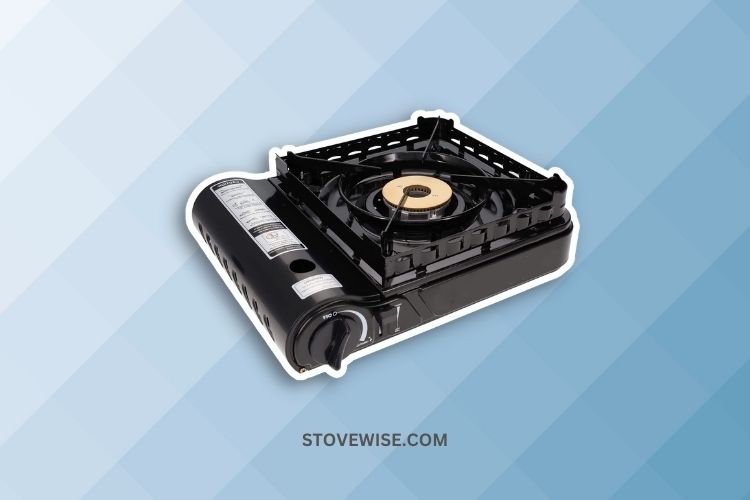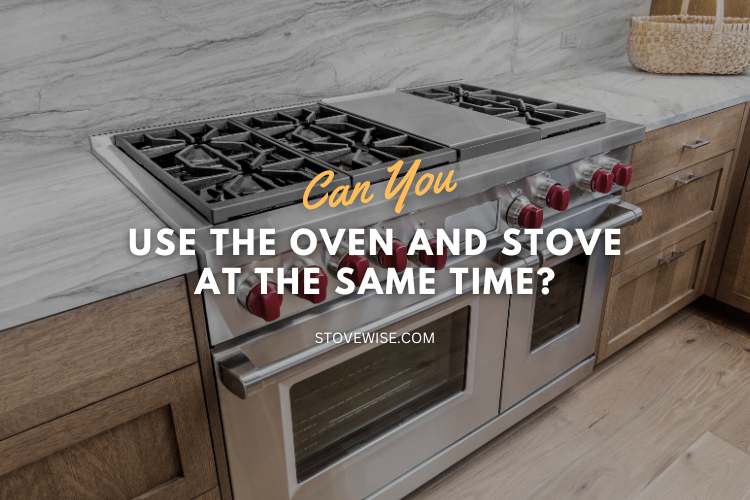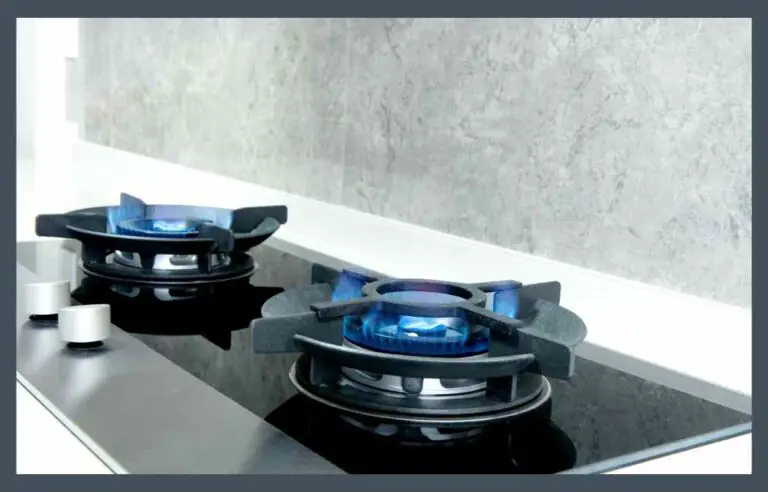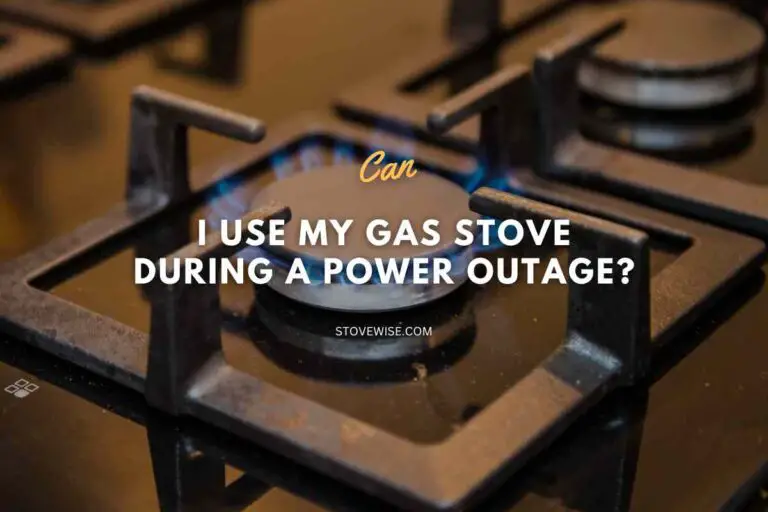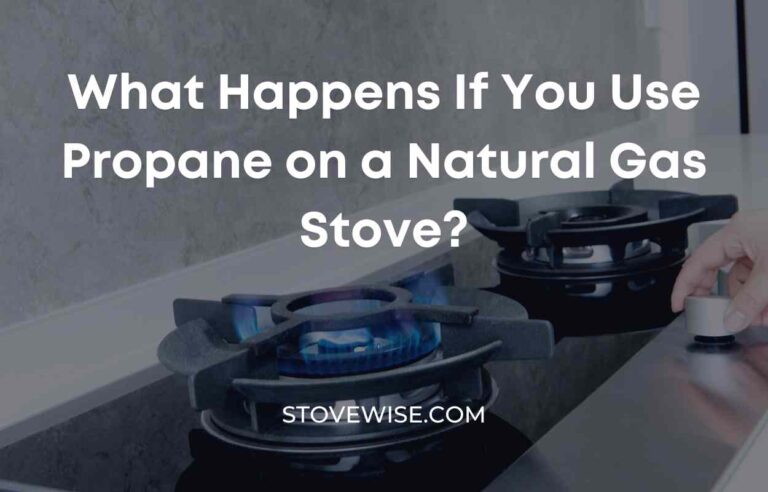Can You Grill on a Butane Stove?
Do you enjoy barbecuing but lack access to an outdoor grill? Or do you live in an apartment complex where outdoor grilling is prohibited? If this is the case, you may be asking if you can grill on a butane stove. The good news is that you absolutely can!
Can You Grill on a Butane Stove?
You can grill on a butane stove using portable butane camping grills that are designed for grilling. These grills have an integrated fuel compartment for an 8 oz butane canister and an auto-ignition for fast, easy starts.
In this post, we’ll cover in detail how to grill on a butane stove, as well as the benefits and drawbacks of this method, as well as some crucial safety precautions to keep in mind.
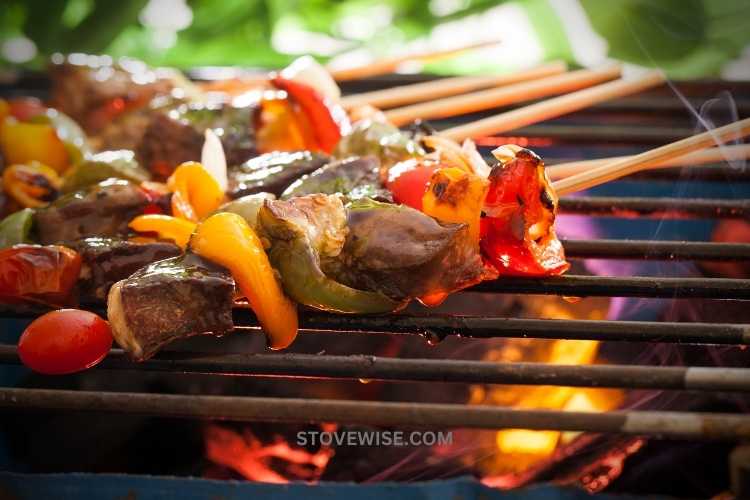
Contents
What Is a Butane Stove?
Let’s define a butane stove before we get into the specifics of grilling on one. A butane stove is a portable burner that generates heat from butane gas.
Butane stoves are widely used as a camping and outdoor cooking stoves, but they can also be used indoors when a standard stove or oven is unavailable.
Factors That Impact When Using Butane Stove For Grilling
When grilling on a butane stove, several factors in subheading sections can impact the grilling experience. Here are some of the most important ones:
Heat Output
The heat output of the butane stove is one of the most critical factors that impact grilling. The heat output determines how quickly the stove can heat up, and how hot it can get.
Generally, higher heat output is better for grilling, as it allows you to sear the meat quickly and get a nice crust while keeping the inside juicy. Be careful while cooking as a longer cooking time can deplete the butane canister quickly, causing the stove to stop working.
Burner Size
The size of the burner on your butane stove will also impact your grilling experience. A larger burner will provide more heat and distribute it more evenly, which is better for grilling larger items like steaks or whole fish.
Grill Surface
The surface area of your grill is another important factor. A larger surface area allows you to cook more food at once, but it can also make it harder to control the temperature and get even cooking.
Some butane stoves come with grills that are designed specifically for grilling, with ridges that allow for better heat distribution and searing.
Wind Protection
When grilling outdoors on a butane stove, wind protection is crucial. Even a light breeze can cool down the grill and make it difficult to maintain the desired temperature.
Some butane stoves have built-in wind protection, while others require you to set up a wind break.
Fuel Efficiency
Finally, fuel efficiency is an important factor to consider when grilling on a butane stove. You want to make sure that you have enough fuel to get the job done without running out mid-cook. Additionally, a more fuel-efficient stove will save you money in the long run.
How Do You Grill on a Butane Stove?
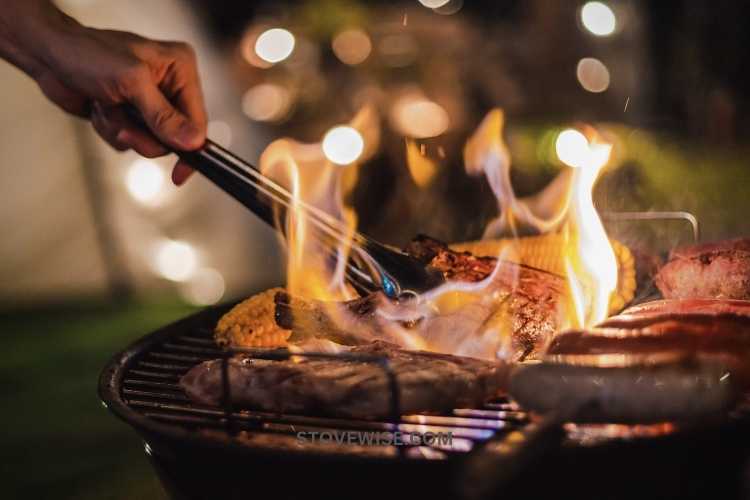
Grilling on a great way to cook your favorite foods indoors on a butane stove, when you can’t grill outside.
Here is a step-by-step guide to grilling on a butane stove:
- Select a grill pan or skillet that fits on top of the butane stove. If you’re using a large grill pan, make sure it can cover two burners that are the same size, so it heats evenly.
- Heat the grill pan on medium-high heat for about 5 minutes before you put food on it. This ensures that the entire surface of the pan is hot and ready to cook your food evenly.
- To prevent food from sticking to the grill pan, wipe it with oil. Take a paper towel and bunch it up into a loose ball, then dip it into a little canola or vegetable oil. Use tongs to hold the paper towel and rub it across the surface of the preheated grill pan.
- Before grilling your food, pat it dry with a paper towel to remove any excess moisture. Brush the food with a little olive oil to create a nice sear on the grill. Sprinkle salt and pepper onto the food according to your taste.
- Place the food into the grill pan and cook it until it’s done to your liking. Flip the food over halfway through the cooking time to ensure it cooks evenly on both sides.
- Once your food is cooked to perfection, remove it from the grill pan and serve it immediately.
Grilling on a Butane Stove
Grilling on a butane burner is a terrific alternative if you want to prepare your favorite foods quickly and easily.
The procedure is straightforward: simply lay your meal on a grilling surface, such as a grill pan or a cast-iron skillet, and cook it over the butane stove’s flame.
Here are some Pros and Cons to consider when grilling on a butane stove:
Pros:
- Butane burners are portable and simple to use, they are an excellent choice for those who do not have access to an outdoor grill.
- Butane stoves heat up quickly, allowing you to start grilling in no time.
- Grilling a variety of items over a butane stove is possible, including meat, fish, vegetables, and even fruits.
Cons:
- Because butane burners are often smaller than outside grills, you may be unable to cook as much food at once.
- It can be difficult to control the temperature of a butane burner, which might result in your meal being overcooked or undercooked.
- Some believe that food cooked on a butane burner lacks the same smoky flavor as food cooked on an outdoor barbecue.
Tips for Grilling Successfully on a Butane Stove
Here are some ideas to help you obtain fantastic outcomes if you decide to grill on a butane stove:
- Select the appropriate grilling surface: For grilling on a butane burner, use a grill pan or a cast-iron skillet.
- Preheat your stove: Before you begin grilling, make sure your butane stove is hot.
- Grease your cooking surface: To keep your food from adhering to the grilling surface, use a high smoke points oil, such as canola or grapeseed oil.
- Keep an eye on the thermometer: Check the temperature of your meal with a meat thermometer to ensure it is properly cooked.
Considerations for Safety
Grilling on a butane stove is safe if you follow certain key safety precautions. Here are some pointers to remember:
- In a well-ventilated environment, use your butane stove. Butane stoves emit carbon monoxide, so use them in a well-ventilated location to avoid carbon monoxide poisoning.
- Keep combustible things away from your butane stove. Maintain a safe distance between your butane burner and any flammable materials, such as drapes or paper towels.
- Never leave a butane stove unattended. To avoid accidents, always keep an eye on your butane stove while cooking.
Conclusion
To sum up, grilling on a butane burner is a terrific alternative if you don’t have access to an outdoor grill or if you want to prepare your favorite meals quickly and easily.
While there are certain advantages and disadvantages to consider, following some easy guidelines will help you obtain excellent outcomes. When grilling on a butane stove, always prioritize safety and utilize your burner in a well-ventilated location.

